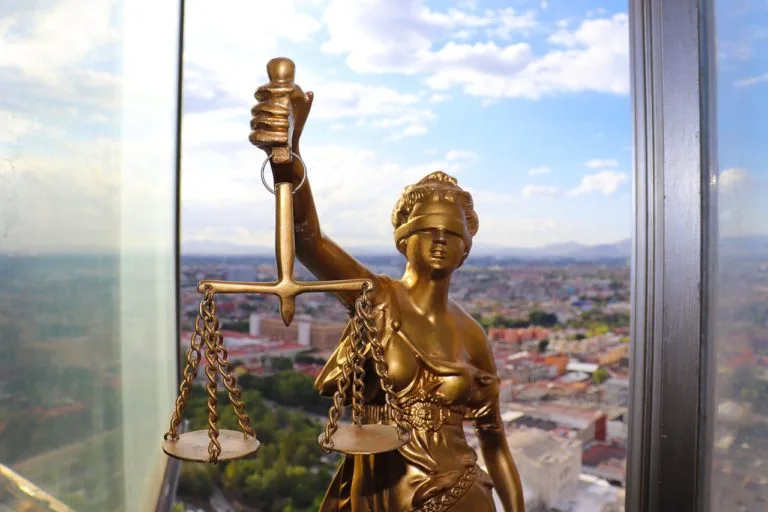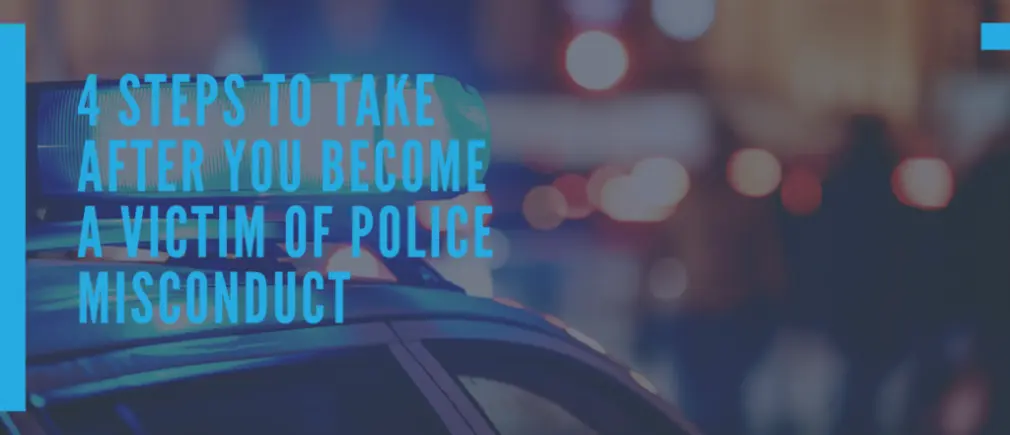|
|
Last Modified on Dec 16, 2024
We all have been witness to some form of police misconduct. Whether it be in a video shared on social media, a news story or in person — we all know what it looks like when police misconduct has taken place. When it happens to you, it can be a frightening and unnerving experience. Feelings of confusion, injustice and vulnerability take over. You likely have never been in this type of situation before, and the next steps may seem unclear or even impossible. Regardless of the circumstances leading up to the altercation, police misconduct and brutality is against the law and you have rights. If the police have violated your rights, you are entitled to demanding accountability from the officers that harmed you.
Each case is unique, and there is no way to capture the intricate steps for each situation. The Four Steps outlined below are a good starting point as you start your journey for justice.
This post is not intended to be legal advice or guidance. If you would like guidance on your case, please contact us today for a free consultation so that we may learn more about your situation. You can contact Greg Peacock Law through our consultation request form; by calling (949) 292-7478; or e-mailing at [email protected].

Step 1: If necessary, seek medical attention immediately
Mistreatment by police officers comes in many forms, and many times there is bodily harm when officers use excessive force. If you have been beaten up, tased, or attacked by a Police K-9 you likely have serious injuries, some which may be life threatening. Seeking medical attention as quickly as possible is in your best interest to prevent further harm and will provide important evidence for your case.
Step 2: Document what happened. Take photos and videos of your injuries. Write down everything you can remember.
Police misconduct is a traumatizing situation for those subjected to excessive force used by police officers. You will likely feel many emotions and it is important to document what you remember as soon as possible after the incident occurred. Police misconduct cases are often lengthy in time, and detailed documentation of the incident will help you remember important details and facts to help support your case.
While some of your injuries may heal overtime, the feelings and emotional stress you received because of the bodily harm will likely last for years to come. Take multiple photos and videos of any injuries you received from police officers as soon as you are able. These photos are important evidence in your case to help prove the extent of your injuries during the altercation.
It is also important to document other information such as:
- The location the incident occurred
- The date and time the incident occurred
- The police officers involved, including their name, badge number and police department.
Step 3: Collect contact information from any witnesses that may have seen the incident.
Having witnesses to your incident is extremely helpful for a police misconduct case. Start collecting the names, phone numbers and addresses from anyone that may have seen what happened and could provide important information about the facts involved in your case. Include anyone you can think of, no matter how much or how little of the incident they may have seen. Any information provided is useful, even if they provide a small detail or observation on what happened.
If a witness recorded the incident on a cell phone or video camera, request a copy of the video so that you can provide the evidence to your attorney in order to support your claims of police misconduct.
Step 4: Consult with an experienced attorney about your case and next steps.
Police misconduct cases are highly complex and require an attorney that is familiar with the legal proceedings in order to protect your civil rights and deliver a successful outcome. When you are searching for an attorney to represent you, you may see several law firms that claim handles police misconduct cases. While many firms may take on the occasional police misconduct case, they may lack the expertise or knowledge needed for your case. Choosing an attorney and law firm that is dedicated to police misconduct litigation is an important step in your justice journey. Attorney Greg Peacock has dedicated his law career to fighting corrupt police departments and has a proven successful track record winning for his clients and bringing accountability to the officers that abuse their power and violate the rights of the victims.
We are here to help you. If you or a loved one has been hurt in a police misconduct incident, contact us today for a free consultation.






